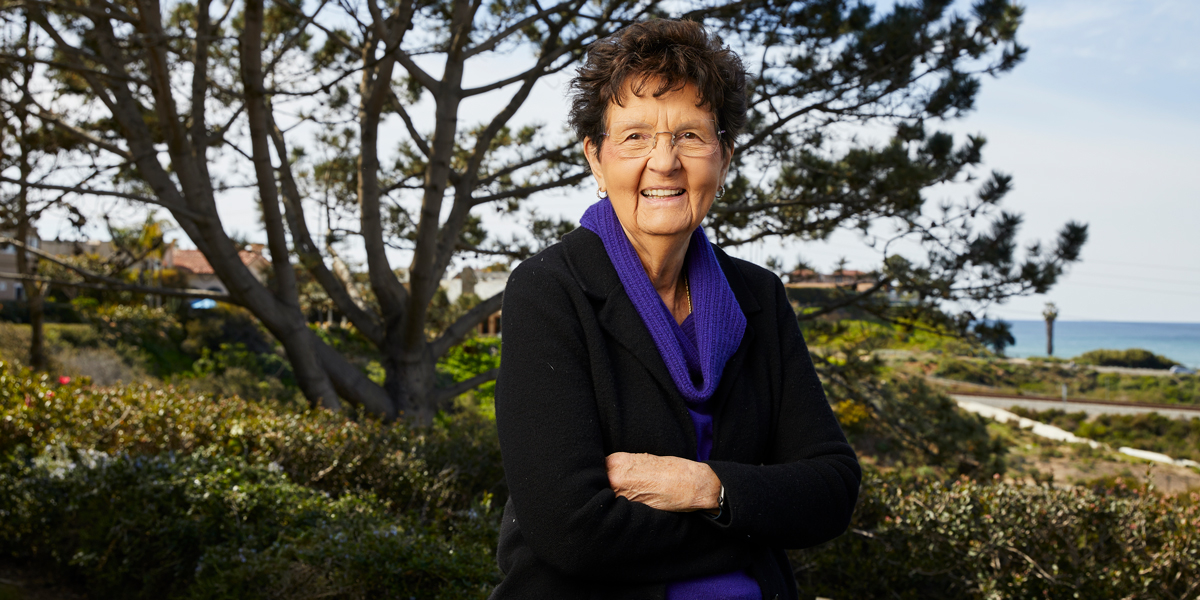
Carol Pletcher (Ph.D. Biochemistry, ’79) likes to tell the story about starfish, the ones on the beach amidst thousands that washed ashore during a storm. There’s a single person walking along, picking up starfish one by one and putting them back into the ocean. A skeptical onlooker comments, “This beach is full of them! You can’t save all these starfish and you can’t begin to make a difference!” The reply, as yet another starfish is put back: “Well, I made a difference for that one!”
This combination of action and determination has characterized Pletcher’s academic, corporate and personal life. After earning her Ph.D. in biochemistry from the University, she spent 23 years at global food corporation Cargill, eventually being named as Chief Innovation Officer. But she never forgot to look back and offer a helping hand. Awareness of the challenges faced by women in STEM led to the establishment of the Carol and Wayne A. Pletcher Graduate Fellowship Endowment, which supports graduate students pursuing a Ph.D. at the College of Biological Sciences, with a preference for women applicants.
Pletcher points to the link between the fellowship and the starfish parable: “This is a resource that’s been 25 years in the making,” she says. “It started with the goal of easing the journey for just one graduate student, and the fund, with its match, has now reached nearly $1 million. We’ve been able to make fellowship awards to 33 students, so we’ve far exceeded our goal to make a difference for just one person.”
Legacy of paying back
“Carol and Wayne both expressed and practiced the attitude of paying back out of gratitude,” says Gary Nelsestuen, professor emeritus of biochemistry, in whose lab Pletcher worked as a postdoctoral student and research associate. “Their generosity will have a significant benefit for the next generation.”
Pletcher knows just how important one of these fellowships can be for a nascent scientific career. “When I was a student, I earned a fellowship from the American Association of University Women (AAUW), and it meant a lot to me,” she says. She’s especially proud of the fellowship’s structure: “There are minimal limits on how recipients can use the money. It can be for research, supplies, equipment, travel or whatever else they need. When I’ve attended the annual recipient luncheon in the past, many have told me they’ve used the funds for childcare expenses — and I cheer that.”
She knows all too well about the challenges faced by many recipients. “As I was completing my Ph.D., one male professor said dismissively, ‘It took you six whole years to get this done,’ and I thought, ‘Well, I completed one Ph.D. thesis and had two babies in that time, so that seems pretty good to me.’”
Opening doors
John S. Anderson is professor emeritus in the Department of Biochemistry, Molecular Biology and Biophysics. He was part of the graduate admissions committee that accepted Pletcher’s application, and he served on her final oral examination committee. “This fellowship is in keeping with her long-standing interest in promoting opportunities for advancement for women,” he notes. “Academic opportunities need to precede entry into the industrial sector, so it’s a crucial step for opening doors to a developing career.”
Pletcher has words of wisdom for women who will be following in her footsteps: “If you don’t compete, you can’t win. And then you need to deliver and help your academic institution or company be better, thanks to your efforts. Above all, your job is to deliver.”